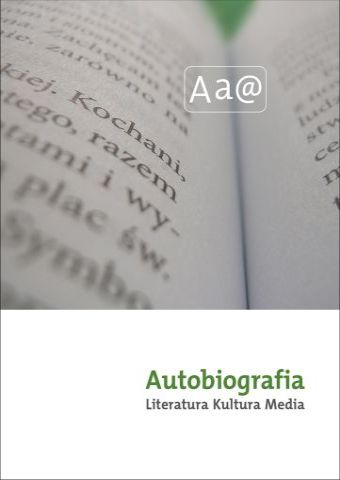






| Authors: |
Joanna
Lisek
Uniwersytet Wrocławski |
| Keywords: | Jewish poetry religious feminism pogrom homoerotic poetry |
| Data publikacji całości: | 2017 |
| Page range: | 18 (39-56) |
| 1. | Baum, Brejndl (Bronia). Zbiór rękopisów zachowanych w archiwum rodzinnym Baumów. |
| 2. | Baum, Brendl. Ketuwim le-bat Jisrael. Tel Awiw, 1954. |
| 3. | Encyclopedia of the Founders and Builders of Israel, red. David Tidhar. T. IV. Tel-Awiw, 1950. Dostęp 4.05.2017. http://www.tidhar.tourolib.org/tidhar/view/4/1869. |
| 4. | Jakov, ben Abraham. Ejn szojn majse buch. Bazylea: Konrad Valdkirkh, 1602. |
| 5. | Cixous, Hélène. „Śmiech Meduzy”. Tłum. Anna Nasiłowska. Teksty Drugie, 22/23/24 (1993), 4/5/6: 147–166. |
| 6. | Kijek, Kamil. „«Naród słabych i skrzywdzonych». Wojny i rewolucje lat 1914–1921 w pamięci młod¬zieży żydowskiej okresu międzywojennego”. Studia Judaica 18 (2015), 1: 85–104. |
| 7. | Kluba, Agnieszka. Autoteliczność – referencyjność – niewyrażalność. O nowoczesnej poezji polskiej (1918–1939), wyd. II. Toruń: Wydawnictwo Naukowe Uniwersytetu Mikołaja Kopernika, 2014. |
| 8. | Lejeune, Philippe. „Dziewczęce «ja» (O dziennikach panien z XIX wieku)”. Teksty Drugie 80/81 (2003), 2/3: 192–211. |
| 9. | Leksikon fun der najer jidiszer literatur, red. Szmuel Niger, Jakow Szacki. T. I. New York: Alwelt¬lechn Jidishn Kultur-Kongres, 1956. |
| 10. | Lisek, Joanna. „Peretz on the Froyen-frage”. W: Trilingual Literature of Polish Jews From Different Perspectives: I.L. Peretz in memoriam, red. Shoshana Ronen i Alina Molisak. Cambridge: Cam¬bridge Scholars Publishing, 2017. |
| 11. | Orłowski, Adam. „Poezja pamięci – literacki dyskurs Jerzego Harasymowicza”. Góry – Literatura – Kultura 7 (2013): 121–131. |
| 12. | Perec, Icchok Lejbusz. Briw un redes fun Y.L. Peretz (Listy i mowy I.L. Pereca), red. Nachman Meisel. New York, 1944. |
| 13. | Prusin, Alexander V. „«The Stimulus Qualities» of a Scapegoat: The Etiology of Anti-Jewish Violence in Eastern Poland, 1918–1920”, Simon Dubnow Institute Yearbook 4 (2005): 243–251. |
| 14. | Showalter, Elaine. Krytyka feministyczna na bezdrożach. Teksty Drugie, 22/23/24 (1993), 4/5/6: 115–146. |
| 15. | Witczak, Krzysztof Tomasz. Słownik biograficzny Żydów tomaszowskich. Łódź – Tomaszów Mazowiecki: Wydawnictwo Uniwersytetu Łódzkiego, 2010. |
| 16. | Wróbel, Piotr. „The «Kaddish» Years: Anti-Jewish Violence in East Central Europe, 1918–1921”. Simon Dubnow Institute Yearbook 4 (2005): 211–236. |